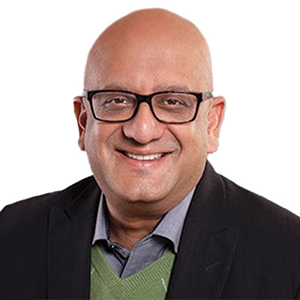Having spent many years as an executive team member or a director and adviser with both for-profit and nonprofit organizations, I’ve observed that the human qualities of competence and confidence are sometimes viewed interchangeably. That is a mistake. Competence is not the same as confidence. I’ve fallen into that trap a few times and have learned the hard way.
Competence to me is about the desire for mastery and excellence and the actual ability or skill an individual possesses in a specific domain. It encompasses knowledge, experience and proficiency gained through education, training and practice. Competence is measurable and objective; it can be evaluated through tests, assessments and performance reviews.
Confidence, on the other hand, in my experience, is the belief in one’s abilities. It is a subjective perception that may or may not align with actual skill or ability. Confidence can be influenced by past experiences, personality traits and the feedback received from others. While competence is about can-do, confidence is about believe-can-do.
Both are crucial for achieving success, yet they serve distinct roles and often interact in complex ways. Understanding the balance between competence and confidence can significantly impact one’s effectiveness, perception and overall trajectory in various aspects of life. So, how does one understand and implement the balance between competence and confidence?
Learn to challenge our beliefs. It is easy to hang on to our old narratives. For most of us, our narratives tend to be tied to our identities instead of our beliefs. The latter is a more accurate version of ourselves. The accelerating pace of change, especially with knowledge in general, means that we need to question our beliefs more readily than before. Also, when it comes to our own knowledge and opinions, we often favor feeling right over being right. In everyday life, we make many diagnoses of our own, ranging from whom we hire to whom we marry. We need to develop the habit of questioning our first opinion.
Seek feedback and reflect. Constructive feedback from credible sources like peers, mentors and supervisors is invaluable for growth. Reflecting on both successes and failures helps identify areas for improvement and reinforces strengths. Embracing feedback with an open mind fosters a growth mindset, which is crucial for long-term development. Being humble when seeking feedback enables us to see things clearly.
Set achievable goals. Setting and achieving small, incremental goals builds both competence and confidence. Each accomplishment provides evidence of one’s abilities, reinforcing self-belief. Gradually increasing the complexity of goals challenges the individual without overwhelming them, promoting steady progress.
Practice self-awareness and self-reflection. Practicing self-awareness and self-reflection can help individuals stay grounded and aware of their true abilities. Self-awareness involves recognizing and acknowledging one’s skills and limitations. This realistic self-assessment helps maintain a balanced perspective, preventing overconfidence and mitigating under confidence.
Competence and confidence are both essential for personal and professional success. While competence ensures the capability to perform tasks effectively, confidence motivates individuals to take on challenges and seize opportunities. By practicing various techniques that include challenging our beliefs, seeking feedback from credible sources, appropriate goal setting and practicing self-awareness, one can cultivate a healthy balance of competence and confidence.
Sanjay Singh is Executive chairman of the board of directors at Mace Security International

